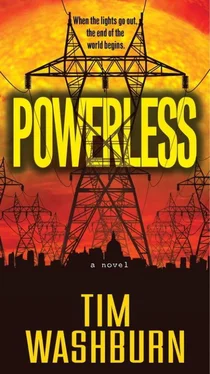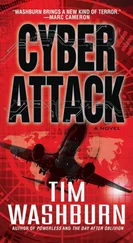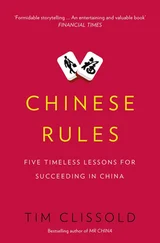Robert Marshall takes a sip of weak coffee, brewed with yesterday’s grounds. “This time of year, I’d pack a coat and a rain slicker. It shouldn’t get too cold, but you need to keep an eye on the horizon. If a cold front comes through it could trigger some thunderstorms.” Robert leans forward and places his forearms on the table. “Are you sure you don’t want me to go with you?”
“No, you need to stay here and take care of Mom. I left you a 12-gauge and a couple of boxes of shells in the garage. And you’ve got your deer rifle.”
“I don’t think there’s anything to worry about.”
“You never know, Dad. I saw some pretty shady-looking people heading down to the campsite at the lake. You need to be aware of what’s happening around you,” Zeke says, the soldier in him coming to the forefront, “and don’t be afraid to use the damn shotgun.”
His father arches his brow. “So you want me to shoot first and ask questions later?”
“I didn’t say that, Dad. Just don’t let anyone get up close to the house. A shotgun pointed at their midsection will deter most people. Look, I’m just sayin’ to be on the lookout, okay?”
His father nods and Zeke turns away to focus on his task. He pats his hip to make sure the Glock G30 is still riding comfortably in the paddle holster. He counts out the number of .45 caliber rounds and stows them away in one of the saddlebags. Three boxes of fifty: one hundred and fifty rounds. Should be plenty.
He slides the Kimber 84L rifle, with a Kevlar–carbon fiber stock, into an old rifle scabbard scrounged from the barn. The bolt-action rifle holds five .270 Winchester cartridges—four in the clip and one hot. The Kimber is an extremely accurate weapon, but only if the shooter knows what he’s doing. Zeke does. Anywhere within four hundred yards is in the kill zone. The rifle is not an aim-for-center-mass-and-pray-type weapon—the .270 rounds are meant for instant death.
His father watches while Zeke counts out the ammunition. “That’s a lot of firepower you’re packing, son.”
“I don’t have any idea what I’m going to run into. But you can bet I’ll damn sure be prepared.” Zeke settles on an even one hundred rounds for the rifle and cinches down the saddlebag.
The last thing Zeke adds to his armory, other than a standard camp ax, is his SOG SEAL Pup combat knife. He slips the knife into a sheath attached to his Danner combat boots, compliments of Uncle Sam. Gunned up, he’s ready for war. “I’d be happy if I don’t have to use any of the weapons, Dad. But it’s much better to have ’em than not.”
Zeke throws the saddlebag over his shoulder and heads for the door, but he stops, snaps his fingers, and makes a detour into his temporary bedroom. He tosses the saddlebags on the bed and reaches into the nightstand drawer to retrieve a silver locket strung on a twenty-inch sterling silver chain. Zeke puts the cold metal to his lips, then slides the chain around his neck, tucking the locket beneath his shirt.
He scoops up the saddlebag and returns to the kitchen. “Dad, want to help me load up the horses?” Last night they moved the three horses into the corral so they wouldn’t need to go hunting for them in the dark.
Robert pushes out of the chair like a young man again and follows Zeke toward the back door. He stops and turns to his wife. “Honey, you pack him some food?”
“I packed him a few things,” Barbara says.
“Dad, I’m not taking your food.”
He shushes Zeke with a wave. “Pack him most of what’s left. I can hunt some game later this evening. Ruth, Carl, and the kids are going to be hungry when you get there.”
His mother retrieves one of her cloth shopping bags from behind the pantry door and begins loading in more food. Zeke shakes his head, but he hadn’t considered the fact that his sister and her family are most likely out of food.
Daybreak is still barely a notion as he switches on the headlamp and steps outside. He walks to the pickup and tosses the saddlebags into the backseat. Zeke had backed the trailer up to the loading ramp last night. The horses are restless after a night of confinement, but with Zeke working from behind, and his father leading with a bucket of sweet corn, they load on easily.
These aren’t quarter horses or Arabians or Thoroughbreds—they’re working horses. Although they haven’t been ridden in some time, they appear eager to work. Zeke turns away from the horses and spots his mother struggling with the bag of bounty she had assembled. He walks over and grabs the bag, surprised at how heavy it is.
“Did you leave enough for you and Dad to eat?” he says.
“We’ll be fine. Now shush about the food. Emma and Noah are going to be hungry.”
Zeke walks back to the pickup and places the bag of food onto the backseat. He turns and offers his hand to his father, but Robert brushes past his outstretched arm and wraps him in a full embrace—the morning’s first surprise. It’s the first time in a long time and the hug feels awkward, but Zeke hugs back, and thankfully, the embrace is short-lived. His mother steps in for one last hug, but unlike with his father, they squeeze each other tightly. Zeke can feel the dampness from her tears as they gather on his chest.
“Be careful, Zeke,” she whispers. Finally, she separates from the embrace and takes a short step back.
Zeke’s working overtime not to spill a few tears of his own. After a deep breath, he kneels down and wraps his arms around Lexi. He desperately wants to take her with him, but he’s afraid she would be too tempting a target for people who are near starving. After a kiss on her forehead, Zeke runs his fingers through her thick coat one last time before standing.
With a small wave, he walks around the other side of the truck, climbs in, and waves good-bye again as the engine coughs to life. He triggers the passenger window down. “I’ll see you three in about a week.”
University Hospital
Dr. Iftikar Singh has been up all night assisting patients. Six patients were removed from their ventilators during the overnight hours and all died within minutes. His most difficult task lies before him. He shuffles down the bustling hallway with the enormity of the moment weighing heavy on his mind. Although he had asked the other doctors to remove their patients from any mechanical lifesaving devices as soon as possible, Dr. Singh chose to wait till the very end for his last patient.
He exhales a heavy breath, straightens his coat, and runs his hand across his face before entering Room 236. A young couple in their midtwenties are seated next to the bed containing their four-year-old daughter.
“Good morning,” Dr. Singh says in a halfhearted mutter.
Both give small nods. Their faces are masked with agony and fear. Chelsea had been admitted two weeks ago with a severe case of influenza. Since that time, and despite an array of medical procedures, her small body has deteriorated. The flu attacked her still-young organs with deadly precision. Chelsea has been on a ventilator for a week and the machines used to measure her brain activity indicated the decline was spiraling beyond hope.
Singh spent most of last evening with Chelsea’s parents as he carefully, and as humanely as possible, described what was occurring with the hospital’s dwindling fuel supplies. Now, searching for words, he starts and stops, then when he can’t assemble a meaningful explanation, he says, “It’s time.”
Chelsea’s mother breaks into heavy sobs and she angrily stands from the chair. “How could you?” she screams.
Her husband pushes out of his chair, a steady stream of tears dripping from his face onto his massive chest. He wraps his wife in an embrace. “Shh,” he whispers into her ear.
Читать дальше












